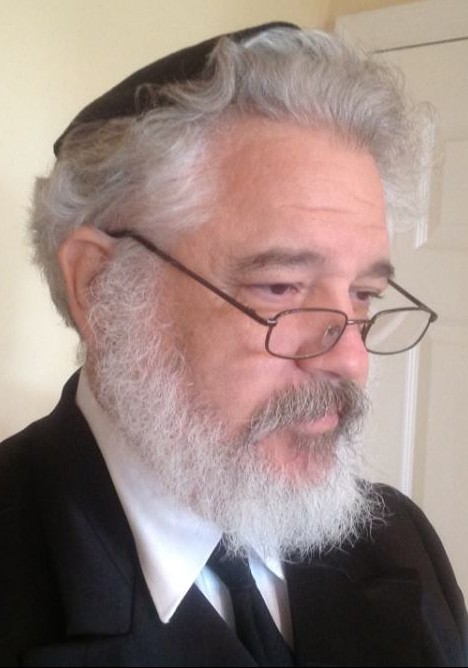parshat b'ha' alotecha
Rabbi Bernstein
| Author | |
| Date Added |
Numbers 9
|
9The Lord spoke to Moses saying: |
|
טוַיְדַבֵּ֥ר יְהֹוָ֖ה אֶל־משֶׁ֥ה לֵּאמֹֽר: |
|
10Speak to the children of Israel saying, Any person who becomes unclean from [contact with] the dead, or is on a distant journey, whether among you or in future generations, he shall make a Passover sacrifice for the Lord. |
|
ידַּבֵּ֛ר אֶל־בְּנֵ֥י יִשְׂרָאֵ֖ל לֵאמֹ֑ר אִ֣ישׁ אִ֣ישׁ כִּי־יִֽהְיֶ֥ה טָמֵ֣א | לָנֶ֡פֶשׁ אוֹ֩ בְדֶ֨רֶךְ רְחֹקָ֜ה֗ לָכֶ֗ם א֚וֹ לְדֹרֹ֣תֵיכֶ֔ם וְעָ֥שָׂה פֶ֖סַח לַֽיהֹוָֽה: |
|
11In the second month, on the fourteenth day, in the afternoon, they shall make it; they shall eat it with unleavened cakes and bitter herbs. |
|
יאבַּחֹ֨דֶשׁ הַשֵּׁנִ֜י בְּאַרְבָּעָ֨ה עָשָׂ֥ר י֛וֹם בֵּ֥ין הָֽעַרְבַּ֖יִם יַֽעֲשׂ֣וּ אֹת֑וֹ עַל־מַצּ֥וֹת וּמְרֹרִ֖ים יֹֽאכְלֻֽהוּ: |
|
12They shall not leave over anything from it until the next morning, and they shall not break any of its bones. They shall make it in accordance with all the statutes connected with the Passover sacrifice. |
|
יבלֹֽא־יַשְׁאִ֤ירוּ מִמֶּ֨נּוּ֙ עַד־בֹּ֔קֶר וְעֶ֖צֶם לֹ֣א יִשְׁבְּרוּ־ב֑וֹ כְּכָל־חֻקַּ֥ת הַפֶּ֖סַח יַֽעֲשׂ֥וּ אֹתֽוֹ: |
|
13But the man who was ritually clean and was not on a journey, yet refrained from making the Passover sacrifice, his soul shall be cut off from his people, for he did not bring the offering of the Lord in its appointed time; that person shall bear his sin. |
|
יגוְהָאִישׁ֩ אֲשֶׁר־ה֨וּא טָה֜וֹר וּבְדֶ֣רֶךְ לֹֽא־הָיָ֗ה וְחָדַל֙ לַֽעֲשׂ֣וֹת הַפֶּ֔סַח וְנִכְרְתָ֛ה הַנֶּ֥פֶשׁ הַהִ֖וא מֵֽעַמֶּ֑יהָ כִּ֣י | קָרְבַּ֣ן יְהֹוָ֗ה לֹ֤א הִקְרִיב֙ בְּמֹ֣עֲד֔וֹ חֶטְא֥וֹ יִשָּׂ֖א הָאִ֥ישׁ הַהֽוּא: |
This week’s Torah portion contains the mitzvah of Pesach sheni, 2nd Pesach. The mitzvah is simple to understand, if Pesach, the 14th of Nisan, and one is ritually contaminated from having touched a dead body, one cannot partake in the eating of the Karbon Pesach. So, Hashem makes provision for those who were contaminated, and those who are too far away. By allowing the Karbon Pesach to be made. One month later, on the 14th of Iyar.
The mitzvah seems easy enough, and it is frequently taught that the purpose of the Smith is to show that Hashem gives us second chances. This interpretation, however, raises some very serious questions. If the purpose of this mitzvah is to teach us that Hashem gives a second chances, why do we have 2nd Pesach, but no 2nd shuvu or 2nd Sukkot? Why is it that the Chagiga, the Festival offering, is commanded for first Pesach, but not 2nd Pesach? The effectiveness did we have a 2nd chance for Pesach, but not for the Chagiga on Pesach, we do not have a 2nd chance for Succot, and we do not have a 2nd chance for Shavuot. So is this mitzvah really about 2nd chances at all?
In fact, Pesach sheni is more about the importance of Israel being reminded about the original Exodus from Egypt than it is about second chances. The reality is that we may celebrate Shavuot, and we may celebrate Sukkot only because of the Pesach. Israel must be reminded of the story of the Exodus from Egypt. We are reminded to relate the story in Torah. Because of the commandment “when your children ask,” we relate the story. With the offering of the Bikurim, we relate the story. When we make kiddush on Shabbat we say, “in remembrance of the Exodus from Egypt.” We thank Hashem for the Torah given at Sinai; we thank Hashem for the joyous celebration of Sukkot. But, we are not commanded to relate the stories of these festivals. But we are commanded to do so for Pesach. It is that important to keep in the forefront of our minds. Therefore, Hashem gives a specific view the ability to bring the Karbon Pesach. If they were contaminated or too far away on the 14th of Nisan. Shabbat shalom.
Tue, October 21 2025
29 Tishrei 5786
This week's Torah portion is Parshat Noach
| Shabbat, Oct 25 |
Candle Lighting
| Friday, Oct 24, 6:33pm |
Havdalah
| Motzei Shabbat, Oct 25, 7:40pm |
SERVICES & STUDIES
Adult Education Class - Shabbat 9:45am
Shabbat Service - 11:15am
Schul Events
Community Events

Rabbi Doctor Steven Bernstein zt"l
Members & Guests
We are so very grateful to Villas Wesleyan Church for opening their doors to us so we can continue having services while looking for our own building.
We need to be excellent guests and this takes every one of us to accomplish, so here are some gentle reminders:
We will have kiddish lunch / nosh as usual – watch for posted signs for where to set food
Bring your own coffee
Nursery facilities are available plus there’s a changing table in the lady’s restroom – whoever uses them is responsible for pick up, disinfecting, and removing trash
Everyone needs to clean up after themselves and their children
We need helpers for break down (move furniture back into position, wipe down surfaces, take out trash)
MANY HANDS MAKE LIGHT WORK! THANK YOU
- Home |
- Map & Address |
- Donate
Privacy Settings | Privacy Policy | Member Terms
©2025 All rights reserved. Find out more about ShulCloud
